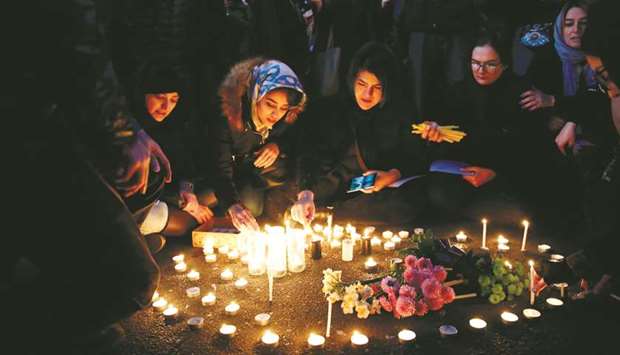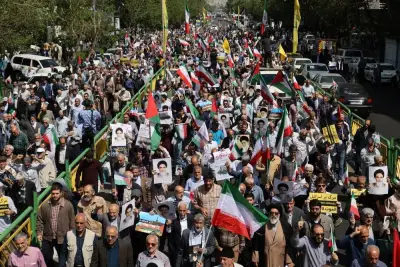Iran said yesterday its military had shot down a Ukrainian plane killing all 176 aboard in a “disastrous mistake”, saying air defences were fired in error while on alert after Iranian missile strikes on US targets in Iraq.
Iran had denied for days after Wednesday’s crash that it brought down the plane, although a top Revolutionary Guards commander said yesterday that he had told authorities about the unintentional missile strike the day it happened.
Foreign governments condemned Iran’s action, with Ukraine demanding compensation and a US official calling the downing reckless, although Britain said Tehran’s admission was an important first step and urged a de-escalation in tensions.
Supreme Leader Ali Khamenei, until now silent about the crash, said information should be made public, while top officials and the military issued apologies.
But state television suggested revealing the truth might be used by “enemies of Iran”, usually a reference to the United States and Israel.
The crash heightened international pressure on Iran after months of friction with the United States and tit-for-tat attacks.
A US drone strike had killed a top Iranian military commander in Iraq on Jan 3, prompting Tehran to fire at US targets on Wednesday.
Canada, which had 57 citizens on board, and the United States had both said they believed an Iranian missile brought down the aircraft, probably in error.
“The Islamic Republic of Iran deeply regrets this disastrous mistake,” Iranian President Hassan Rouhani wrote on Twitter, promising that those responsible would be prosecuted. “My thoughts and prayers go to all the mourning families.”
Experts said mounting international scrutiny would have made it all but impossible to hide signs of a missile strike in any investigation and Iran may have felt a U-turn was better than battling rising criticism abroad and growing grief and anger at home, as many victims were Iranians with dual nationality.
In Twitter messages, angry Iranians asked why the plane was allowed to take off with tensions in Iran so high.
The plane, a Boeing 737-800 en route for Kiev, came down shortly after take-off from Tehran, when Iran was alert for US reprisals in the hours after it launched rockets at US troops in Iraqi bases.
A group of Iranian protesters demanded Khamenei step down because of the disaster.
Iran’s leadership faced mass protests in November.
A senior Trump administration official, who spoke on condition of anonymity, said that “Iran’s reckless actions have again had devastating consequences”. British Prime Minister Boris Johnson said Iran’s admission was “an important first step” and that it was “vital that all leaders now pursue a diplomatic way forward” to avoid conflict.
The European Union said measures needed to be taken “to ensure that such a horrible accident can never occur again”.
Iran’s Revolutionary Guards, in a rare step, apologised to the nation and accepted full responsibility.
Senior Guards commander Amirali Hajizadeh said he had informed Iran’s authorities on Wednesday about the unintentional strike, a comment that raised questions about why officials had publicly denied it for so long. Speaking on state television, he said he wished “I could die” when he heard the news about the incident.
Ukraine demanded an official apology and compensation.
Canadian Prime Minister Justin Trudeau called for “a complete and thorough investigation” with Iran’s full co-operation.
Iranian Foreign Minister Mohamed Javad Zarif wrote on Twitter that “human error at time of crisis caused by US adventurism led to disaster”, citing an initial armed forces investigation into the crash.
A military statement said the plane flew close to a sensitive Revolutionary Guards site at a time of high alert.
Ukraine said the plane was in a normal flight corridor and Iran’s Civil Aviation Organisation said the airliner had not veered off its normal course.
Ukraine International Airlines said Iran should have closed the airport. The carrier said it had received no indication it faced a threat and was cleared for take off.
Analysts said a probe would almost certainly have revealed signs on the smashed fuselage of a missile strike.
“There’s nothing you can do to cover it up or hide it,” said Anthony Brickhouse, an air safety expert at Embry-Riddle Aeronautical University and former US National Transportation Safety Board investigator. “Evidence is evidence.”
The disaster echoed a 1988 incident, when a US warship shot down an Iranian airliner, killing 290 people.
Washington said it was an accident. Tehran said it was intentional.

Iranians light candles for the victims of Ukraine International Airlines Boeing 737 during a gathering in front of the Amirkabir University in the capital Tehran, yesterday.


